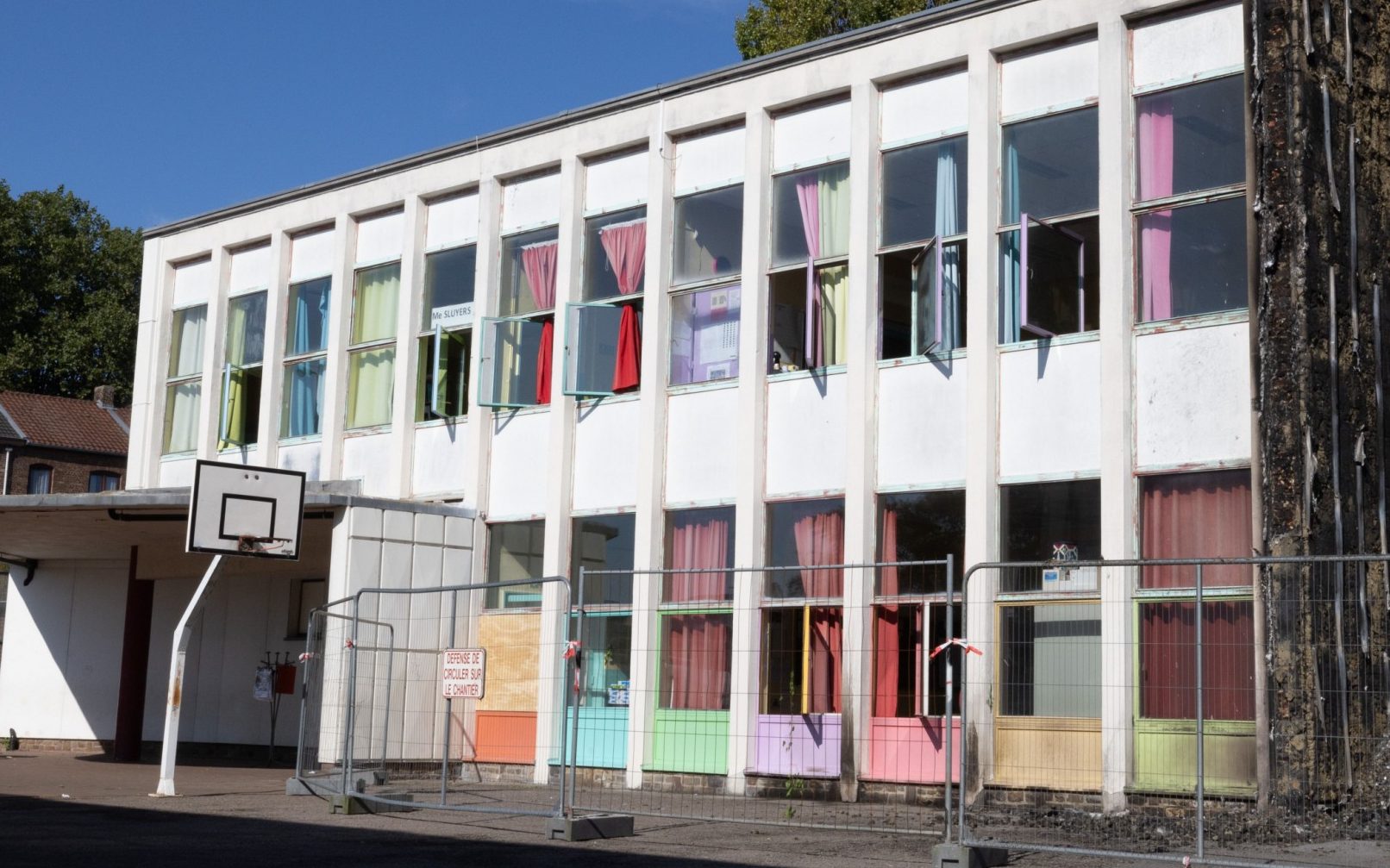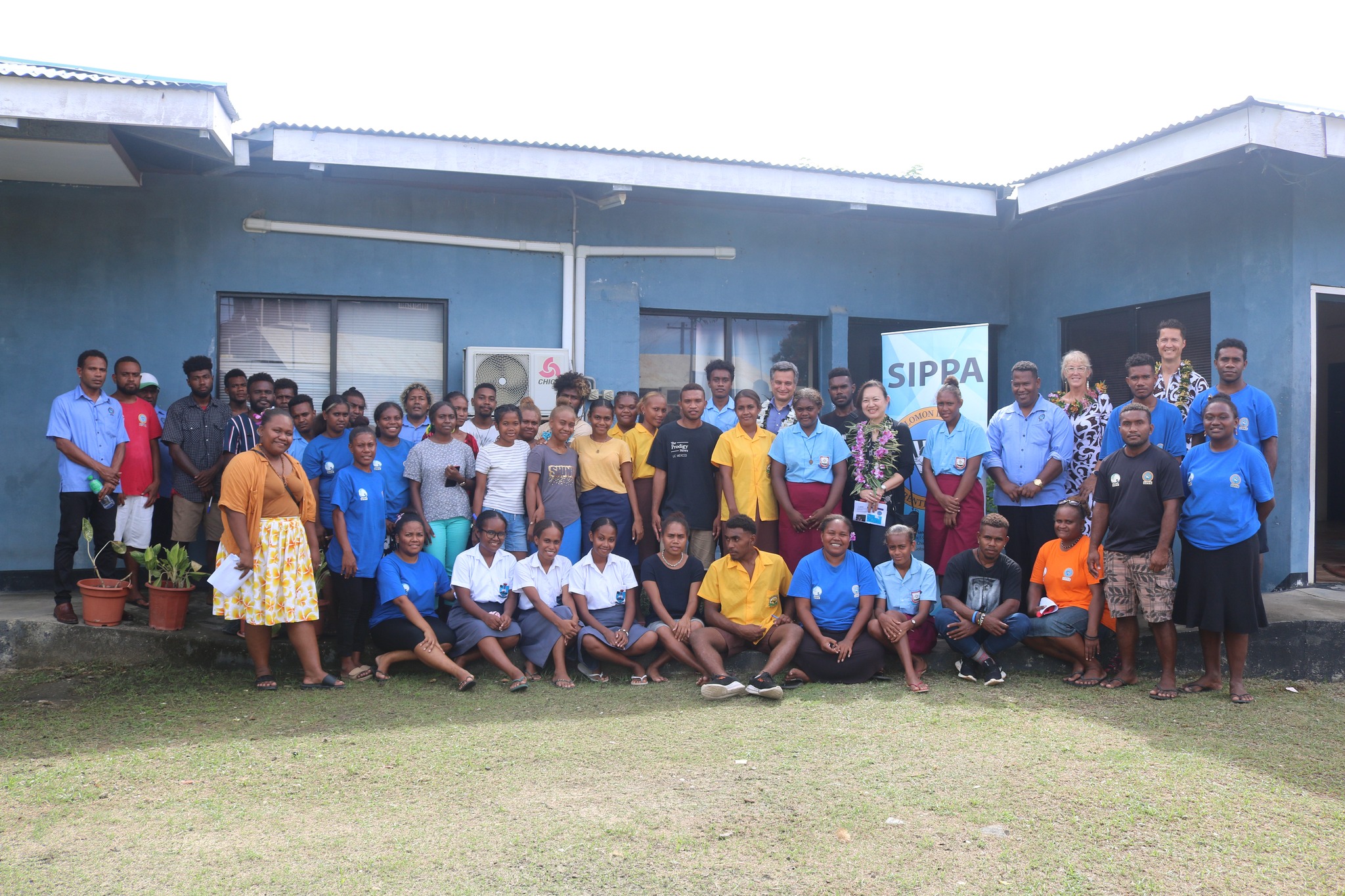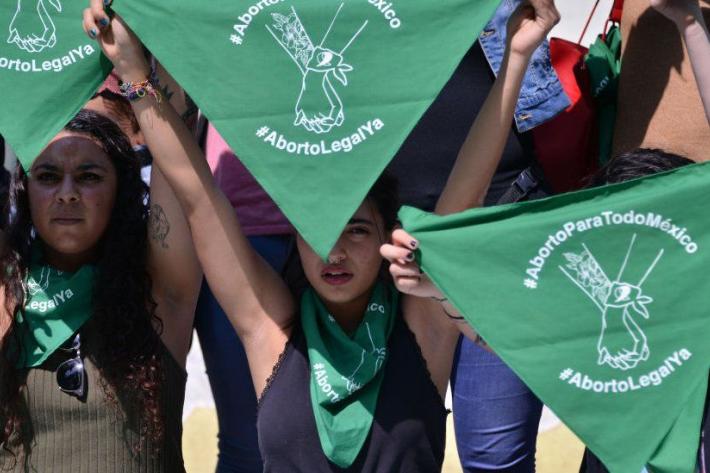Latest press releases
A selection of stories from across the Federation

Netherlands
Rutgers triumphs in landmark court case against lies, online hate and disinformation
Rutgers, the Netherlands’ leading sexual and reproductive health expert and IPPF’s Member Association, has today secured a landmark legal win against an ultra-conservative group.
For media enquiries


| 17 April 2025
Rutgers triumphs in landmark court case against lies, online hate and disinformation
17 April 2025 - Rutgers, the Netherlands’ leading sexual and reproductive health expert and IPPF’s Member Association, has today secured a landmark legal win against an ultra-conservative group notorious for fuelling online hate and spreading disinformation. This ruling is a crucial step forward in protecting young people’s health, safety and well-being from harmful narratives designed to undermine their rights. Rutgers took legal action against Civitas Christiana, due to the persistent lies and slander that Civitas continued to spread about Rutgers and the Spring Fever Week. This is an annual campaign in the Netherlands, held in Spring, focused on resilience, heathy relationships and sexual health. The court ruled entirely in favour of Rutgers; all statements must be rectified. The statements by Civitas - made through their social media channels, mainstream media and direct outreach efforts - were not only found to be false, but also harmful and unlawful. This important decision affirms support for parents, teachers, and schools, all who are committed to ensuring children to grow up healthy, safe and happy and protected from disinformation and misinformation. Schools participate voluntarily in Spring Fever Week by providing structured, age-appropriate lessons on these topics to their primary school students. Rutgers took these legal steps to support parents, teachers, and schools, and to combat misleading and vexatious misinformation, as our work is unapologetically about child safety and protection. It’s about giving young people agency and keeping them safe from perpetrators. Young people without information and without bodily autonomy are unsafe. This case was about standing with and for the young people, parents, caregivers, educators and communities who are targeted and harmed by these toxic campaigns run by ultra-conservative groups. The court’s ruling sends a clear message: there is no place for hate and misinformation in public discourse, especially when it endangers the lives, safety and health of young people. “This legal case was not about a difference of opinion on education,” says Rutgers deputy director Luc Lauwers, “but about the spreading of fake news that puts children in danger rather than protecting them. Everyone has the right to their own values, beliefs, opinions, religious convictions, and way of life - including in matters of education and parenting. That is a fundamental pillar of our democratic legal system in the Netherlands. However, the freedom of expression and freedom of religion that Civitas Christiana appeals to are not without limits.” Victories like this matter deeply. At a time when sexuality education is under coordinated attack by alt-right movements globally, this victory speaks volumes about the power of civil society organisations to stand firm, fight back, and defend truth, science and young people’s rights. Anti-rights groups work to erode trust, sow fear and promote regressive narratives that do real harm - particularly to young people. Staying silent is not an option. Every time we speak up, seek justice and share the truth, we help build a society where young people are safe, informed and healthy. This ruling is a meaningful step, but our shared global responsibility continues. For media inquiries, please contact: [email protected] or [email protected] the International Planned Parenthood Federation IPPF is a global healthcare provider and a leading advocate of sexual and reproductive health and rights (SRHR) for all. Led by a courageous and determined group of women, IPPF was founded in 1952 at the Third International Planned Parenthood Conference. Today, we are a movement of 158 Member Associations and Collaborative Partners with a presence in over 153 countries. Our work is wide-ranging, including comprehensive sex education, provision of contraceptive, safe abortion, and maternal care and responding to humanitarian crises. We pride ourselves on being local through our members and global through our network. At the heart of our mission is the provision of – and advocacy in support of – integrated healthcare to anyone who needs it regardless of race, gender, sex, income, and crucially no matter how remote. About RutgersRutgers is the Dutch centre of knowledge and expertise on sexual health, safety and well-being for young people. We work to improve the sexual and reproductive health and rights of all (young) people in the Netherlands and in more than 29 countries around the world. In partnership with other organisations we advocate for sexual and reproductive health and rights, promote public support and do (scientific) research.Together with partners, we work within countries and internationally to improve sexual rights, access to sexuality education and information, access to contraception and safe abortion services and to prevent sexual and gender-based violence.

| 21 September 2023
IPPF Condemns the Arson Attacks on Schools Delivering Sex Education in Belgium
IPPF condemns the multiple school arsons across the French-speaking Wallonia region in Belgium over the past week, which have been connected to public protests against the compulsory “education in relationships, affective and sexual life” (EVRAS) program. These targeted attacks are evidence of a growing movement opposed to Comprehensive Sexuality Education (CSE) curricula, and the duty of states to support and protect children in their sexual development. IPPF is deeply concerned that a small cadre of those with extremist views are targeting schools with violence, which serve as vital safe spaces for children and young people to become educated, empowered citizens. In the face of global misinformation campaigns and attempts to silence the organizations and institutions providing high quality comprehensive sexuality education, IPPF affirms that these programs empower children and young people to protect their health and well-being and support them in developing healthy and positive relationships throughout their lives. Dr. Alvaro Bermejo, IPPF Director General said: “The violent attacks on schools in Belgium are proof of how anti-rights campaigners are multiplying around the world and fuelling divisions by spreading false or misleading information about existing education curricula. We know from decades of research and our own programmatic experience in this area that comprehensive sexuality education helps children and young people to understand and enjoy their sexuality, take responsibility for their own sexual and reproductive health and rights and respect other people’s. We stand with the educators in Belgium who are delivering on a sex education curriculum that promotes children and young people’s rights.” Research shows that parents and young people agree that sexuality education should be offered in schools, and that parents are willing to join these programs, particularly as they help their children to navigate relationships and sexuality amid the complex challenges of the digital era. Many governments around the world, including Belgium, are making sexuality education programs a national priority to protect all children and young people from harm. IPPF stands with the schools and educators delivering this vital education in Belgium and around the world, and we remain committed to providing children and young people with the knowledge to protect and promote their safety, health and wellbeing. For media inquiries, contact [email protected] Banner image: Shutterstock

| 19 April 2023
Statement on the Outcome of the 56th Session on the Commission on Population and Development
The International Planned Parenthood Federation expresses its disappointment that the fifty-sixth session of the Commission on Population and Development (CPD), held from 10-14 April 2023 at UN headquarters in New York, did not result in a resolution on the theme of Population, Education and Sustainable Development. The Chair’s draft resolution for consideration on 14th April was the result of many weeks of intergovernmental discussions and represented a compromise to address the positions of all delegations. It was a balanced text based on previously agreed language and included critical elements related to this year’s priority theme, including ensuring a comprehensive response to the learning crises the world is facing today. Key issues including the need for gender-responsive policy development, a focus on marginalized communities, youth and adolescents, sexual and reproductive health and reproductive rights were consensually included in the draft resolution, demonstrating global consensus on these issues. However, consensus on the document was unfortunately broken by a small minority of Member States who were unable to accept language pertaining to comprehensive education on human sexuality, which was language adopted at this very Commission in 2014, and which comes from the 1994 ICPD Programme of Action itself. It is disappointing that these few Member States found it more important to block agreed language than to adopt meaningful advancements in the area of education. The ramifications of the failure to adopt this resolution will have an impact on billions of young people, adolescents and girls worldwide who have experienced the largest disruption of education systems in history, where more than 90 % of the world’s children have had their education interrupted by COVID-19 and 263 million children and young people are still out of school (1 in 5). IPPF is, however, encouraged that the negotiations on this resolution, which took place over several weeks, demonstrated the on-going commitment of Member States to the the ICPD Programme of Action (PoA), the key actions for its further implementation, the declaration on the occasion of the twenty-fifth anniversary of the International Conference on Population and Development, and resolutions and work of the Commission on Population and Development. We also welcome the plenary program of the 56th session of the CPD, which featured strong data on comprehensive sexuality education from UN agencies as evidence of its beneficial impact on children, adolescents and young people. In addition (or equally important), the experience of national programs and the passionate voices of young people reaffirmed that comprehensive sexuality education is an essential tool to empower young people and adolescents to make informed choices about their bodies, lives and futures. With a view towards the 30th anniversary of the ICPD PoA in 2024, we appreciate the commitment of Member States to continue working to deliver on the Programme of Action of the International Conference on Population and Development (ICPD) and look forward to engaging in the national, regional, and global processes of ICPD+30, culminating in next year’s 57th session of the Commission on Population and Development.

| 28 March 2023
IPPF’s Director General Visits Solomon Islands and Australia
The Director General of the International Planned Parenthood Federation (IPPF), Dr Alvaro Bermejo, is in Australia this week for high level meetings with Australian Government Ministers and the Australian Department of Foreign Affairs and Trade (DFAT). He is joined by Ms Tomoka Fukuda, Regional Director of IPPF’s East and Southeast Asia and Oceania Region (ESEAOR) and Ms Phoebe Ryan, IPPF’s Chief of the Australia and New Zealand Office. In Australia, Dr Bermejo has been privileged to meet with Australia’s Minister for International Development and the Pacific, the Hon Pat Conroy. Together, they discussed how Australia can play a leadership role in advancing sexual and reproductive health and rights through Australia’s international development cooperation. Last week, Dr Bermejo and Ms Fukuda visited IPPF’s Member Association in Solomon Islands, the Solomon Islands Planned Parenthood Association (SIPPA). In Solomon Islands, they witnessed SIPPA’s life-saving and critical work delivering sexual and reproductive healthcare on the ground, including mobile outreach in remote communities of Malaita Province. Australia has been a long-standing and critical partner to IPPF, supporting programming to reach women, girls, and marginalized groups across the development–humanitarian continuum around the world, with a particular focus on the Asia Pacific. In December 2022, IPPF and DFAT signed a new four-year global funding agreement for 2023 to 2026, part of which includes dedicated support to programming across the Pacific. AUD 19 million is dedicated as global funding towards the delivery of IPPF’s Strategy 2028, along with a further AUD 5.7 million to support the delivery of IPPF’s Pacific Niu Vaka Strategy, Phase 2. This generous investment will enable IPPF to reach an anticipated 1.8 million people in the Pacific over the next six years with 4.2 million essential sexual and reproductive services. IPPF is proud to stand alongside our Pacific MAs as they continue to advocate for the health and rights of those most underserved and excluded, reaching communities with essential information and high quality, person-centred sexual and reproductive health care. In 2021, IPPF reached over 72 million people around the world with more than 155 million sexual and reproductive health services and contributed to 121 policy and legislative changes in defence of SRHR. IPPF is grateful for Australia’s ongoing support in enabling this impact. IPPF’s Director General, Alvaro Bermejo shared: “IPPF are delighted to be working with the Australian Government to continue improving the sexual and reproductive health and rights (SRHR) of women and girls across the globe. We are grateful to them for helping us deliver more services and support at a time when inequalities are deepening, the opposition is growing, and humanitarian crises continue to place the lives of millions, particularly women and girls, at risk. As we look to build the future with our new strategy, continued support from global partners is crucial to achieving a world where everyone has access to sexual and reproductive healthcare. We hope DFAT’s strong global commitment will inspire other global leaders to take action.” For media enquiries, please contact Karmen Ivey on [email protected] or Phoebe Ryan on [email protected] About the International Planned Parenthood Federation The International Planned Parenthood Federation (IPPF) is a global service provider and advocate of sexual and reproductive health and rights for all. For 70 years, IPPF has delivered high-quality sexual and reproductive healthcare and helped advance sexual rights, especially for people with intersectional and diverse needs that are currently unmet. Our Member Associations and partners are independent organizations that are locally owned, which means the support and care they provide is informed by local expertise and context. We advocate for a world where people are provided with the information they need to make informed decisions about their sexual health and bodies. We stand up and fight for sexual and reproductive rights and against those who seek to deny people their human right to bodily autonomy and freedom. We deliver care that is rooted in rights, respect, and dignity - no matter what.

| 10 November 2022
Sexual and reproductive justice to deliver the Nairobi commitments
Today, the International Planned Parenthood Federation (IPPF) is helping launch the second report of the High-Level Commission on the Nairobi Summit, also known as the International Conference on Population and Development 25 (ICPD 25). The Commission is an independent advisory board comprised of 26 members from different sectors tasked with monitoring progress on the ICPD Programme of Action and Nairobi Summit Commitments. The programme of action contains commitments from 179 countries to put the rights, needs and aspirations of individual human beings at the centre of sustainable development, part of which includes achieving universal access to sexual and reproductive health for all. The report - ‘Sexual and reproductive justice as the vehicle to deliver the Nairobi Summit commitments’ - highlights sexual and reproductive justice as the key to the realization of the Nairobi Summit commitments. Sexual and reproductive justice is a universal concept. It includes the right to have or not have children, the right to parent one’s children in safe and sustainable environments, and the right to sexual autonomy and gender freedom. Monitoring the implementation of life-saving sexual and reproductive health and gender-responsive services is crucial to ensure accountability and human rights for all. However, while some progress has been made, many barriers persist, and millions worldwide still do not realize their sexual and reproductive rights. Progress on Nairobi Summit Commitments: Numerous country commitments made at the Nairobi Summit align with a sexual and reproductive justice framework. They pay explicit attention to marginalized and vulnerable populations, notably people with disabilities, refugees, migrants (particularly migrant women), young people and older persons. Indigenous peoples, people of African descent and other ethnic minority groups have received less attention. A slew of new reproductive rights legislation followed the Nairobi Summit, suggesting a basis for a sexual and reproductive justice framework. The high number of commitments prioritizing sexual and gender-based violence offers a powerful entry point for promoting sexual and reproductive justice. On the Summit’s Global Commitments, some improvement is evident in meeting unmet need for family planning. But no region has registered positive movement towards zero preventable maternal deaths. Greater access to family planning has yet to translate into better maternal health outcomes. There is some progress in offering comprehensive and age-responsive information and education on sexuality and reproduction and adolescent-friendly, comprehensive, quality and timely services. Certain regions and countries have advanced in providing timely, quality and disaggregated data. More must be done, but this creates opportunities for ensuring that data capture intersecting challenges and are used to inform laws, policies and programmes. Domestic and international finance is critical to sexual and reproductive justice but persistently lags commitments. More than 4 billion people globally will lack access to at least one key sexual and reproductive health service during their lives Dr Alvaro Bermejo, Director-General for the International Planned Parenthood Federation, said: “Three years on from the Nairobi Summit and while we have seen some progress in sexual and reproductive health and rights across countries like Colombia, Mexico and Thailand, globally, we remain far from reaching the commitments made at ICPD 25 - that all women and girls will have autonomy over their bodies and lives through universal access to sexual and reproductive health and rights (SRHR). “With the devasting loss of abortion rights across the U.S having a disproportionate impact on poor women and women of colour, ongoing humanitarian crises across countries like Afghanistan, Ethiopia and Ukraine creating unliveable, unsafe and unsustainable conditions for millions, and the loss of billions of dollars of funding severely affecting access to sexual and reproductive health care for those most in need, 2022 continues to demonstrate the critical need to champion sexual and reproductive justice for all - recognizing the importance of intersecting oppressions on people’s ability to make decisions about their bodies, lives and futures. “At the International Planned Parenthood Federation (IPPF), we remain dedicated to helping countries deliver on the Nairobi commitments as we approach ICPD 30. Using our unique position as a locally-owned, globally connected organization, we will continue to work in solidarity with donors, governments, partners and communities to ensure that everyone, everywhere, can access high-quality SRH care, especially those who are most often excluded, locked out and left behind. “IPPF also urges governments to heed the Commission’s call to action and do more to achieve sexual and reproductive justice. This means tackling the economic, social and legal barriers that prevent its implementation, more financial investment, including in universal healthcare, increased solidarity with partners and the sense of urgency needed to get the job done. The lives and futures of millions depend on it.” For media enquiries, please contact Karmen Ivey on [email protected] or [email protected] About the International Planned Parenthood Federation The International Planned Parenthood Federation (IPPF) is a global service provider and advocate of sexual and reproductive health and rights for all. For 70 years, IPPF, through its 108 Member Associations and seven partners, has delivered high-quality sexual and reproductive healthcare and helped advance sexual rights, especially for people with intersectional and diverse needs that are currently unmet. Our Member Associations and partners are independent organizations that are locally owned, which means the support and care they provide is informed by local expertise and context. We advocate for a world where people are provided with the information they need to make informed decisions about their sexual health and bodies. We stand up and fight for sexual and reproductive rights and against those who seek to deny people their human right to bodily autonomy and freedom. We deliver care that is rooted in rights, respect, and dignity - no matter what.

| 22 February 2022
Colombia decriminalizes abortion
Today, the Colombian Constitutional Court decriminalized abortion up to 24 weeks in another victory for the Green Wave sweeping through Latin America. The historic decision follows years of campaigning by women's right's activists across Colombia and came off the back of two lawsuits that asked the court to declare article 122 of the penal code, that "the woman who causes her abortion or allows another to cause it, will incur a prison sentence from sixteen (16) to fifty-four (54) months" as unconstitutional. The court called an extraordinary meeting today, Monday 21st February, and took just a few hours to come to its decision which will go into effect immediately. ProFamilia, the International Planned Federation's Member Association in Colombia, and Colombia's largest provider of legal abortion care were heavily involved in pushing to extend the rights of those needing to access abortion care. Marta Royo, Executive Director for Profamilia, IPPF's Member Association in Colombia, said: "Today is a ground-breaking moment for the people of Colombia and a long-overdue guarantee of reproductive rights and dignity for all those who need abortion care, especially poor and rural women who bear the brunt of restrictive abortion policies. "The decriminalization of abortion up to 24 weeks in Colombia and the Green Wave movement across Latin America is centred not just on public health, but also the full lives, citizenship and human rights of girls, adolescents, and women – who, for multiple reasons, including inequity, access to education, gender-based violence and barriers to healthcare – continue to face unintended pregnancies. "The freedom for women to finally make their own choices about their pregnancies and their bodies is fundamental to disrupting the cycle of poverty that so many in Colombia face. This monumental decision is also a win for the dedicated health care providers, who will finally be recognized as people who simply care about the needs of others." While Colombian women have supposedly been able to access abortion care since 2006 under three circumstances: if their life or health is at risk, in cases of fatal foetal abnormalities, or if the pregnancy is the by-product of rape or incest, in reality, the criminalization of abortion persisted. The Guttmacher Institute found that less than one per cent of the estimated 400,000 abortions carried out each year in Colombia are performed legally, with women, especially poor, rural, vulnerable and marginalized women, facing significant barriers to accessing safe and timely abortion care. Many Colombian women are instead forced to carry their pregnancies to term or else seek other methods to end them. Figures collected by ProFamilia showed that during 2020, there were at least 26,223 unsafe abortions across Colombia, a startling amount for which consequences range from infection to life-changing injuries to death. As per the previous abortion law, other women have been imprisoned for up to four and a half years for having an abortion, even in cases where abortion should have been legal. In a shocking example of discrimination, data collected showed that poor rural women were more likely to be charged, with a third of those who faced charges also survivors of sexual violence. Eugenia Lopez Uribe, IPPF's Regional Director for Americas and the Caribbean Region, said: "Today Colombia took another step in the right direction for gender equality and full human rights for all, and we are incredibly proud of IPPF's Member Association, ProFamilia, for their tireless work alongside thousands of activists across Colombia and Latin America "This 24-week decriminalization is historic in the region and especially remarkable when we consider the current fragility of abortion rights globally and the anti-choice movements which continue to plague nations across the world, including in countries close to home like the United States of America. "While today we are celebrating this historic decision, the Green Wave is strong and growing, and the fight for reproductive rights and justice will not end until every person can access high-quality sexual and reproductive healthcare when and where they need it." For media enquiries in English, please contact Karmen Ivey on [email protected] or [email protected] For media enquiries in Spanish or during UK night-time hours, please contact Pamela Martin Garcia on [email protected]

| 21 February 2022
Mexico’s Supreme Court votes to decriminalize abortion
The International Planned Parenthood Federation (IPPF) welcomes the unanimous decision taken by the Supreme Court of Mexico to decriminalize abortion. The decision is a step closer for women and pregnant people to fully exercise their reproductive rights and bodily autonomy through safe and legal abortion care. Abortion is legal in four out of the 32 federal entities in Mexico. Only four other countries in the region - Argentina, Cuba, Uruguay, and Guyana have almost unrestricted and legal access to abortion care. Eugenia Lopez Uribe, IPPF’s Regional Director for the Americas and Caribbean said: “This historic ruling by the Supreme Court of Mexico is thanks to the feminist movement in Mexico and in the region, who have been relentless in their fight the law to recognize the dignity and humanity of people seeking abortion care. This decision will continue the Green Wave ripple effect across the region - we look at Argentina last year and now Mexico, these movements give us hope and motivation to continue to fight for sexual and reproductive health and rights for all.” Esperanza Delgado, Strategic Director for Advocacy and Interinstitutional Relations of MEXFAM added: “September 7 will become a memorable date in Mexico. In a progressive pronouncement in favour of reproductive autonomy, respect for the secular State, and the rights of women and pregnant people over those of the embryo, Mexico's highest legal authority indicated that it is unconstitutional to punish those who decide to terminate a pregnancy at its early stage. “All of us who have joined forces and who are fortunate enough to fight for the recognition of human rights, should be proud and may our achievement inspire others in every corner of the planet. MEXFAM is committed to making this long-awaited legislation a reality for every person that decides to choose.” For media inquiries please contact [email protected]
















